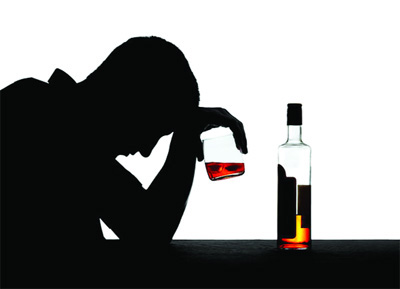Dr Abhishek Chowhan
RS a 48-year-old male has been drinking alcohol for past 30 years. Alcohol has destroyed his life in many ways. He is divorced twice, his children do not visit him and he has mistreated all of his relatives who now do not care for him. He has been expelled from many jobs due to frequent absenteeism and fights with co-workers. He has exhausted almost all of his finances on alcohol. He regrets what he has done to his life but he has lost all of his family and social support.
Alcoholism is also known as a family disease. The effects of alcoholism on families can cause more damage and pain than any other internal or external influence on the family unit. The impact of the drinker’s abuse or addiction is usually manifested differently with each member of the family and has long-term implications. Alcoholism has a transforming effect on the spouse or partner that can create significant mental trauma and physical health problems. Divorce rates among couples where one or both partners drinks is much higher than average.As alcohol abuse or addiction progresses, the non-drinking spouse often grows into a compulsive care-taking role, which creates feelings of resentment, self-pity and exhaustion. The marriage suffers from poor spousal communication, increased anger and distress, reduced intimacy and sexual desire, increased marital abuse and depleting finances spent on alcohol.
Each member of the family may be affected by alcohol differently. Parental alcoholism may affect the fetus even before a child is born. In pregnant women, alcohol is carried to all of the mother’s organs and tissues, including the placenta, where it easily crosses through the membrane separating the maternal and fetal blood systems. She may give birth to a baby with Fetal Alcohol Syndrome (FAS). Babies born with FAS are shorter and underweight compared to normal babies. They have deformities of the brain and skull, and very characteristic facial features such as small eye openings; thin upper lips; long, flat faces; and a long groove in the middle of their upper lips. These children’s central nervous systems are also damaged.
Parental alcoholism also has severe effects on normal children of alcoholics. Many of these children have common symptoms such as low self-esteem, loneliness, guilt, feelings of helplessness, fears of abandonment, and chronic depression. These children often experience high levels of tension and stress. Young children of alcoholics may have frequent nightmares, bed wetting, and crying. They also may not have friend, may be afraid to go to school and have academic problems. Older children of alcoholics may show such depressive symptoms as obsessive perfectionism, hoarding, staying by themselves, or being excessively self-conscious. They may grow up to be alcoholics themselves.
In addition to the financial and emotional toll alcohol abuse can have, domestic violence and child abuse may occur. According to various studies 60 – 92 percent of victims of domestic violence reported that the assailant had used alcohol or other drugs on the day of the assault. In the fortunate event that the parent or partner who abuses alcohol seeks treatment, family therapy and marital therapy can help affected families in the healing and recovery process.
(The author is Consultant Psychiatrist Govt Medical College Jammu)


